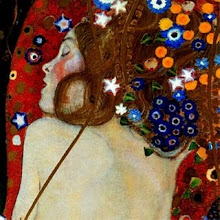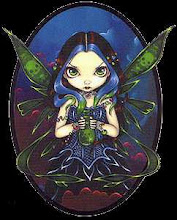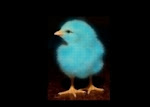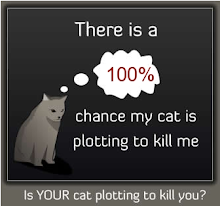
⇐ Was it here or here ⇒
If you eat animals, when you eat your lunch, do you think about the life that chicken or pig led? Was that cow in your roast beef a grass fed cow that was led to a mercifully fear-free slaughter through Temple Grandin's magnificent designs or is that burger on your plate part downer-cow, dragged until its hide was raw, to its slaughter?
Anyone who has known me for a while will see it as quite an evolution that I'm pro-hunting these days. It's like a 180 degree turn. But see enough film footage of factory farming and you'll be right there along with me. Of course, I'm not talking about Sarah Palin-style hunting from helicopters. I'm talking about the old-fashioned way. If you're a good shot and you eat what you hunt, hunting is probably the kindest way you can eat animals. Some of my readers are lucky to be able to hunt for their meat. That's especially lucky for the animal that gets to live a full life before it becomes a meal.
Hunting provides many people in rural areas with options to obtain their meat in a fashion that is hopefully cruelty-free, factory farming-free and often, other than for the cost of the permit, and weapon, free. For those in impoverished areas, hunting can be a vital means to providing protein in their diets.
How do you kill? What do you kill? Why do you kill? How does a hunter feel about hunting? Jen gives us her view...
How do you kill? What do you kill? Why do you kill? How does a hunter feel about hunting? Jen gives us her view...
I am a hunter, and more than just that, a woman who hunts alone. And yes, I kill animals and I eat what I kill.
To understand why I hunt and how I became a hunter, you have to understand how I grew up. The where is easy- I grew up on a very, very large place in the Lowcountry along tidal rivers, cypress swamps, fields, old rice fields and forests. Not only places my parents and grandparents owned, but extensive lands owned/managed by cousins and friends as well as paper company timberlands. Literally, hundreds of thousands of acres. My father raised cattle and horses and my siblings and I had ponies, carts, goats, cats, dogs (always purebred as were the horses), rabbits, and anything that wandered up. All of these animals lived and they died. Some of the men who worked for my grandparents and my father kept pigs, as well. When you live in the country, you grow up aware that death is frequent, commonplace and that death comes to all. And, in the country, hunting is a part of life because sometimes, it can be the only source of meat for the very poor.
When I was still very young, I began going to the woods, to the swamps, to the rivers, to the rice fields to sit and watch. Imagine a solitary little girl, sitting very, very still and very, very quiet for hours. Just watching. And what did this little girl see? She saw otters and ospreys catching fish, hawks and owls (because she also sat outside at night) catching small mammals, foxes and bobcats hunting. And every animal that hunted ate what it killed. And no creature killed for “fun” or for a “trophy” –only for food. And so she decided that she, like the animals she watched, would never kill unless she ate what she hunted. And in all the many, many years since, she never has.
How did she learn to hunt? When she was old enough to physically handle them, her father gave her a bow, a rifle and a shotgun, fitted to her,-and told her when she could hit a target in a “kill spot” every time, she could hunt. Not before. So she practiced. She practiced every day, shooting at different targets at different distances. She learned to break 100 skeet clays in a row with a shotgun, so she could dove hunt. She learned to break 100 trap clays in a row with a shotgun, so she could quail hunt. She could hit the bullseye with an arrow every time at a distance up to 50 yards. And with a rifle, she never, ever missed, regardless of where the target was or how far away. Her father told her to never quit practicing, because you owe whatever you hunt a quick, clean death. And to never confuse hunting with killing. In all those many years since, she never quit practicing-and she has never, ever missed a kill shot. And, as her father told her, she never confused hunting with just killing. She respects what she hunts and gives them a quick, clean death. Far quicker and cleaner than that of any slaughterhouse.
Because, of course, meat doesn’t come wrapped in butcher paper or in Styrofoam packages covered in cellophane. Somebody, somewhere killed an animal, bled it, gutted it, and butchered it. And, unlike that little girl, they didn’t practice until they never, ever missed, so that death was instant and clean and perfect.
But to answer the question, “Why do I hunt?” I don’t have a quick and easy answer. My motivation is very complex. First, there is the desire to be outside and away from humanity. To interact with nature in a deeply visceral way. To be alone, in the quiet, to experience the harmony of the world. How many of us have sat beneath a tree, waiting on the sun to come up, when suddenly, the tree itself became a living cathedral with a thousand birds, as from each jeweled throat came a dawn paean to their god? I have. How many of us have watched a wild turkey dancing his flamenco dance of passion and desire? I have. How many of us have sat in the woods, as quiet as quiet can be, as still as still can be and had a vixen play with her kits within 2 feet? I have. These are all part of hunting, part of the days and hours spent scouting and observing. Locating animals and defining their habits, their preferred eating and sleeping areas. Part of the reason is indeed the need to get away from humanity and isolate my self. Another part is that I feel that if I am going to eat meat, well, I need to kill it myself. I need to assume the responsibility for the death of what I eat.
I only shoot barren does or young bucks. I never kill a doe with a fawn at her side. And since I'm not a trophy hunter, I leave the "big boys" alone. I figure if they've survived this long, I'm not going to be the one to end their life. But sadly, in the Southeast at least, where the natural predators of deer have been eliminated (although natural resource agencies are encouraging and trying to reintroduce predators) and where habitat shrinks, deer are overpopulated. This leads to starvation and, in some areas, chronic disease. To see a deer starving to death in the winter is a terrible, heartbreaking sight. It is far more cruel and heartless to let deer starve than it is to kill them quickly and cleanly.
Finally, the last part is basic instinctive drive. Man is, after all, an omnivore. The day I hunt, rather than scout and observe is different and very, very difficult to explain. That day ends with a kill. That day I am more purposeful, much more calculating, very centered and very, very aware. That day I am no longer an observer, but a predator, looking for a kill.
The kill is the culmination of many things. I hunt fairly. The animals I hunt have far better eyesight, far better hearing and far better sense of smell than I do. I bowhunt, so I get within 20 yards for a clean kill. I hunt from the ground, so I have no overhead advantage. In fact, I have no advantage, other than my bow-and that bow has to be drawn and the arrow notched without the deer or boar noticing it. And the boar, of course, can kill me if I miss or wound him. So, the hunt combines passion, logic, skill and adrenaline into a single experience. The kill itself is the closure, the endpoint, the ne plus ultra.
When I turkey hunt, I use a shotgun. My shotgun is fitted to my specifications and my shotshell/choketube combination has been selected and patterned to cause instant death. And it does. I don’t use a bow because I don’t consider it ethical. Bow hunting wild turkeys does not result in a quick, clean kill and I will not hunt this way.
I fully realize that what I eat was a living creature. I don’t, however, consider it ethical to give a death order to a butcher or a slaughterhouse and not consider where the meat came from. I don’t see how anyone can distance himself/herself from the fact most meat comes from animals living in dreadful conditions, being injected with compounds that breakdown muscle tissue while they still live. There is no attempt at animal welfare at these places. I cannot help but feel that an animal is better off living wild than existing under those conditions- even if it dies by my arrow.
And this segues into the ethics of hunting. I only hunt what I can eat, never more. I hunt fairly, either with a bow or a shotgun, both of which require a close shot. I feel that I owe whatever I hunt the mercy and dignity of a quick, clean kill. To provide this, I practice as often as weather permits. I take archery and shotgun lessons to ensure that I remain as accurate as I can possibly be. My equipment is chosen to provide a quick, clean kill. I never take a shot unless I am 100% sure it is a kill shot and I will not miss –and my bow, my draw weight, my arrows, my broadheads are chosen to ensure that. My shotgun is fitted to my specifications and the shotgun/choketube/shotshell combination is selected to be as deadly as possible. Death is instant or within a few seconds.
I look an animal in the eye as it dies. I watch the pupil expand and then fix. I feel the heat leave the carcass. I feel that unless you can do these things, you don’t need to be hunting. Dying is never easy- every living thing is special unto itself and death is the end of that life. And there is always a sense of sadness. Sadness that something unique is dead and gone forever, regret for having killed, yet gladness at having killed quickly and ethically. And yes, I realize the contradiction and the irony.
And finally, I rarely allow pictures to be taken-and then only if someone else insists. I think it degrades the animal and I don’t like that.
To quote the Spanish philosopher José Ortega y Gasset :
"Hunting submerges man deliberately in that formidable mystery and therefore contains something of a religious rite and emotion in which homage is paid to what is divine, transcendent, in the laws of nature. It is a transcendent experience. We know the gathered as only those in the choir know it."

























No comments:
Post a Comment